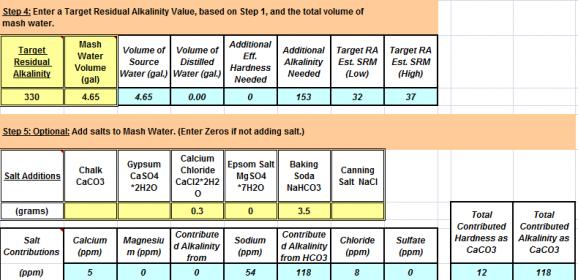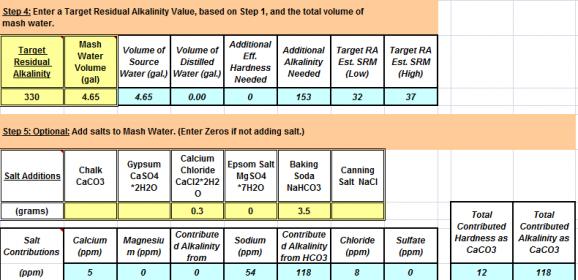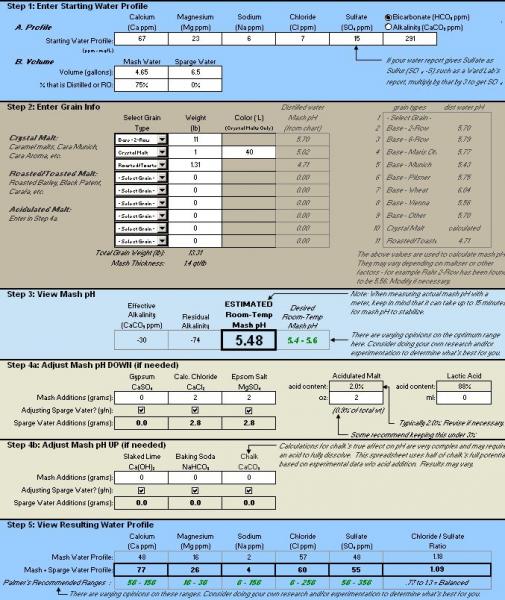HI,
I was really hoping someone could take a look at my results with palmers Mash RA spreadsheet. I think I got it right but I wanted to make sure.
Source Water + SRM:

Mash Water + Salt additions:

Water Results:

Anyone see any issue with my plan? Or have any thoughts?
Thank you so much for looking at this!



I was really hoping someone could take a look at my results with palmers Mash RA spreadsheet. I think I got it right but I wanted to make sure.
Source Water + SRM:
Mash Water + Salt additions:
Water Results:
Anyone see any issue with my plan? Or have any thoughts?
Thank you so much for looking at this!







